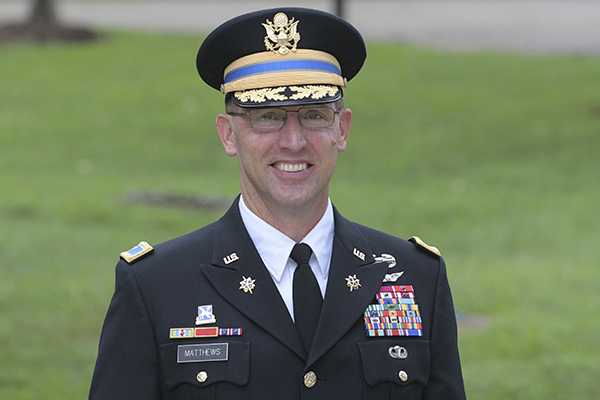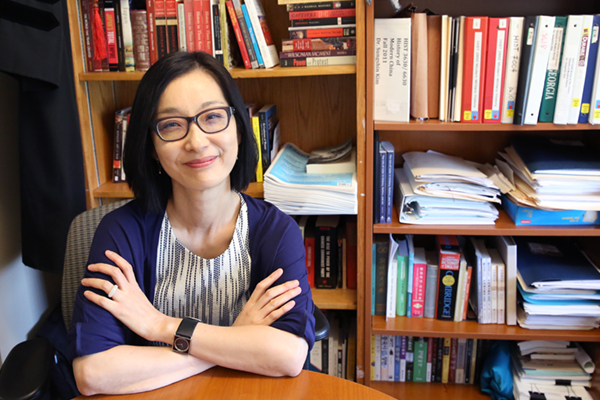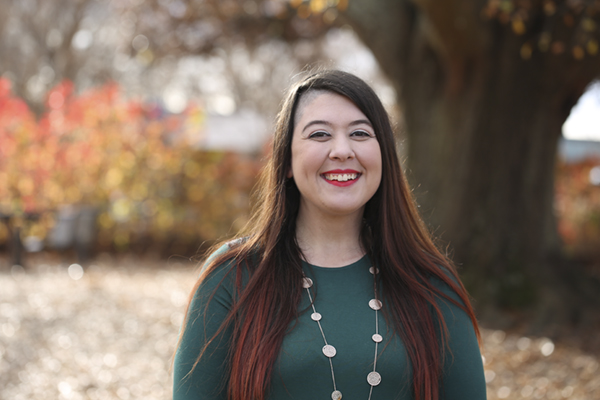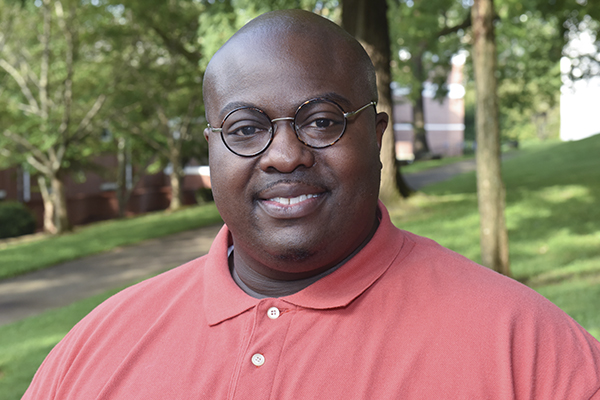Renee Bricker
"Remember that even a small step is a step," said Dr. Renee Bricker, associate professor of history at the University of North Georgia (UNG).
Bricker's life, like that of most people, is a compilation of steps, some big and some small. All of her steps were fueled by a desire to always be civically engaged. Her civic engagement began at a young age.
"My mother was a labor union member. She used to clean restrooms for a pharmaceutical company. It was pretty grubby work," Bricker said. "As a young person, a child even, I was around a lot of labor folks. So I became interested with people's enfranchisement and disenfranchisement in politics."
Her interest in civic engagement extended to her undergraduate years. At 17 years old, Bricker started an initiative in response to then-Michigan Gov. William G. Milliken, who promoted cutting college funding in the fall of 1981 and spring of 1982.
Bricker came to UNG in 2010 with an arsenal of ideas and hope of making a lasting impact on the student body. The temperature of civic engagement at the time on UNG’s Dahlonega Campus seemed moderate.
"It was traditional pencil and paper registration," Bricker said. "Politics was not at the top of most students' agenda."
Bricker wanted to change that. She wanted to alter the climate of civic engagement in Dahlonega, Georgia to make registering to vote easier for students.
Bricker started UNG's collaboration with Democracy Works, an organization dedicated to "challenging the status quo" with college-aged voters, according to its website. One of its proposals is the TurboVote Initiative, which merges the convenience of the internet with helpful reminders about upcoming elections.
While the TurboVote Initiative has ended at UNG, Bricker still strongly believes in the importance of developing voter habits at a young age.
"Studies show that students who are politically active during college, quite simply by voting, tend to continue the civic habit of voting and participation, which is what a democracy requires," Bricker said.
When asked what advice she could give to a person who wants to be involved but does not know how to begin, her answer is simple: Just do it.
"See what's going on with the things you're interested in," Bricker said. "What are people doing? What are they saying? Are there any debates or laws? Start with what matters to you and let that guide what you do next."
Bricker believes a successful democracy cannot function without teamwork and meaningful involvement. As a history professor, she believes it is imperative to revisit the past to better understand our own context and plan for the future.
"Ask yourself, 'How are we functioning within our structures of authority?'" Bricker said. "Then ask yourself, 'What could we do?' I really feel very passionate about the basic function in democracy of voting."




